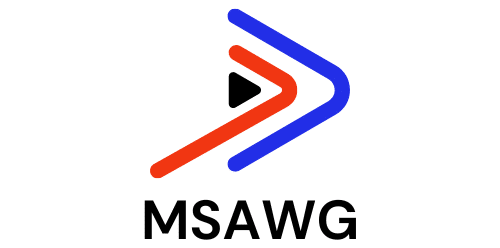You’re a musician. You’ve poured your heart and soul into your work, creating something unique and beautiful. But how can you monetize your music in a digital world where everything seems free? Enter the world of NFTs.
What are NFTs?
You’ve probably been hearing about NFTs everywhere lately, but what are they, and why are they relevant to the music industry? NFTs, or non-fungible tokens, are a type of digital asset created using blockchain technology. Each NFT is unique and can’t be replaced with anything else. Imagine it like a digital certificate of authenticity.
Dans le meme genre : What Are the Best Practices for Building a Secure Mobile Banking App for UK Consumers?
In the art world, NFTs have been revolutionizing the way artists sell their work. They allow artists to digitize their art, sell it on an NFT platform, and retain ownership rights. This is a huge departure from traditional art selling, where the artist loses their rights once the art is sold.
NFTs are not just for visual artists. Musicians are also beginning to explore the opportunities NFTs offer for the music industry. Here is how UK independent musicians can leverage them to monetize their work.
A lire aussi : How Can UK-Based NGOs Partner with Corporates for Sustainable Development Projects?
How Musicians can Monetize their Work with NFTs
When you think of musicians selling their work, you probably think of physical sales like CDs or digital platforms like Spotify. But these revenue streams often leave musicians at the mercy of record labels and streaming platforms. NFTs offer a new way for musicians to take control of their financial future.
By tokenizing their music, musicians can sell their work directly to their fans. This not only allows musicians to set their own prices but also to retain a percentage of any future sales. This is possible because NFTs allow for smart contracts. These are self-executing contracts with the terms directly written into the code. This means musicians can build in royalties to their work, ensuring they benefit from secondary sales.
For instance, a musician could sell an NFT of their album directly to their fans. The musicians can set their own price, and if the NFT is later resold, the musician still makes a profit. This is a fundamental shift in the music industry’s financial model, giving more power back to the artist.
NFTs and Fan Engagement
NFTs don’t just offer financial benefits. They also create new opportunities for fan engagement. At their heart, NFTs are about ownership. When a fan buys an NFT of a musician’s work, they’re not just buying the music. They’re buying a piece of the artist, a token that represents their connection to the musician.
This sense of ownership can be a powerful tool for building a fan community. Musicians could offer exclusive content, early access to new releases, or even virtual meet and greets to the owners of their NFTs. This not only adds value to the NFT but also deepens fans’ connection to the artist, fostering a stronger community.
UK independent musicians can use NFTs to monetize their work and build their fanbase, all while maintaining control of their music.
Challenges and Opportunities with NFTs
As with any new technology, there are challenges to navigating the world of NFTs. For one, the technology is still relatively new, and the market can be volatile. Prices for NFTs have been known to fluctuate wildly, and there is still a lot of speculation.
Another challenge is the environmental impact. The crypto technology used to create NFTs uses a lot of energy, leading to concerns about its carbon footprint.
Despite these challenges, the opportunities NFTs offer for musicians are substantial. They offer a new way to monetize work, engage with fans, and take control of rights and royalties. Plus, as the technology matures and becomes more widely adopted, it’s likely we’ll see solutions to the current challenges.
Conclusion: The Future is NFTs
The music industry is on the brink of a revolution. NFTs are changing the way musicians sell their work, engage with their fans, and control their financial future. For UK independent musicians, this could be the difference between staying afloat and thriving in a digital world.
The future of music is digital, and NFTs are at the forefront of this shift. So for musicians looking to make a living from their art, understanding and embracing NFTs could be key to their success.
Exploring the NFT Marketplaces for Musicians
In the evolving NFT space, a number of dedicated NFT marketplaces have emerged, offering a platform for artists and musicians to tokenize and sell their work. These digital platforms, built on top of blockchain technology, allow artists to mint their own NFTs and set the terms of sale.
For musicians, these NFT marketplaces open up a new revenue stream. Previously, artists had to rely on record labels and streaming platforms to sell their music. Now, with the advent of blockchain music platforms, they can directly sell their music to their fans, and set their own prices.
One of the key advantages of these platforms is that they allow musicians to utilize smart contracts. This is a significant shift in how artists can profit from their work. Traditionally, once a piece of music was sold, the artist had no claim to future profits. With smart contracts, artists can build in royalties, meaning they earn a percentage of any future resales. This gives artists a stake in the ongoing value of their work.
In addition, these marketplaces enable artists to connect with their fan base in a new way. Fans aren’t just buying a piece of music, they’re buying a unique digital asset that connects them to the artist. This sense of ownership can create a stronger bond between an artist and their fans, helping to build a dedicated and engaged community.
However, as with any new technology, there are challenges to consider. The volatility of the NFT market can be daunting, and there are important environmental concerns around the energy usage of crypto technologies. Yet, the potential benefits for musicians navigating the NFT space are undeniably enticing.
Conclusion: Embracing the NFT Revolution
In conclusion, NFTs music represents a significant shift in the music industry. They offer a new way for UK independent musicians to monetize their work, build their fan base, and retain control of their music. With the use of NFT marketplaces and smart contracts, artists can take control of their financial future and foster stronger connections with their fans.
Yes, there are challenges to be faced – the volatility of the market and environmental concerns being two of the most significant. However, as the technology matures, it’s likely that solutions will be found to these problems.
The potential of music NFTs is tremendous. They offer a new paradigm for artists, giving them the tools to thrive in the digital world. Although it’s still early days for NFTs in the music industry, there’s a sense of a revolution on the horizon.
The future of music is digital, and NFTs are leading the charge. For UK independent musicians looking to navigate this new landscape, embracing NFTs could be key to their success. The future of music is here, and it’s spelled NFT.











